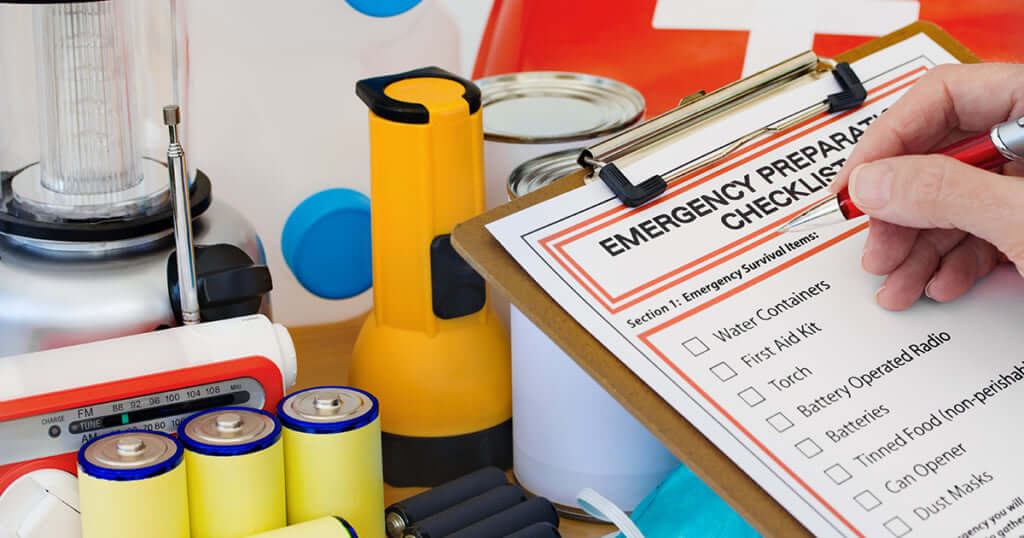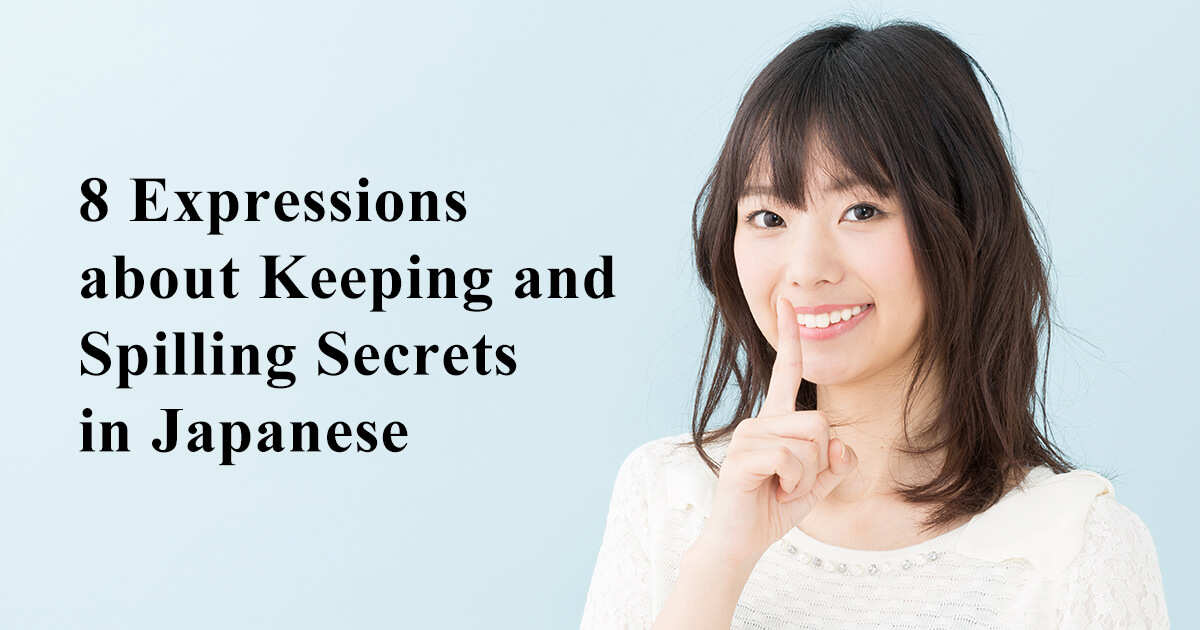
What happens if you are living or travelling in Japan and you encounter an accident or disaster? You don’t know any Japanese language and depending on the scale of the disaster, you may lose your life if you know nothing about the language.
Let’s look at some life-saving expressions today.
Basic
It is important to speak politely in Japanese but this rule does not apply during emergencies. During emergencies, Japanese people omit polite speech such as “masu”, “desu”, and “kudasai”, and shout for help. The imperative form is used in this case.
It is important to use the correct phrase but simply by understanding what you hear will also help to save your life.
1. 助(たす)けて!
Tasukete!
(Help!)
Even if you are a beginner Japanese learner, you must memorize this phrase. If you need help when you have met an accident, disaster, or you are a victim of a crime, shout “助けて! Tasukete!”.
The polite way of saying this is “助けてください Tasukete kudasai” but nobody will think that you are rude when you say “助けて Tasukete” during emergencies.
2. 危ない!
Abunai!
(Danger!)
Say for example, you accidentally entered a place you shouldn’t have, or crossed a road where you’re not supposed to, or is about to hit another car. Japanese people around you would probably shout this phrase. Remember “危ない! Abunai!” and save your life.
3.逃げろ!逃げて!
Negero! Negete!
(Run!)
What happens when there’s an earthquake while you’re enjoying a swim at a beautiful beach? You have to run away immediately because a tsunami may occur. In this case, Japanese people around you may shout the above phrase.
“逃げろ Negero” is the imperative form of “逃げます nigemasu” (to escape), and it is a very strong command. This shows immediate danger and you must remember it.
Beach
Many drowning accidents have occurred in many parts of Japan this summer. If you watch the news, you would have noticed that foreigners consist of a high number of these casualties. If they had understood Japanese signs, things may have been different.
4. 遊泳禁止
Yuuei kinshi
(No swimming)
A calm beach may be dangerous as you do not know whether there is a sudden drop in the sea level. Even if you can’t read kanji, try to remember the word “禁止 kinshi” (prohibit).
5. ここで泳がないでください。
Kokode oyoganaidekudasai.
(Do not swim here)
The signs read “遊泳禁止 Yuuei kinshi” but the spoken expression is as above.
6. ここに入らないでください。
Kokoni hairanaidekudasai.
(Do not enter)
Listen carefully to instructions regarding areas that you cannot enter or swim at.
7. ここで遊ばないでください。
Kokode asobanaidekudasai.
(Do not play here)
This is a similar expression to save your life. Try to understand that it means “prohibited”.
Traffic Accidents
There is a higher risk of getting involved in traffic accidents in a foreign country as you are not familiar with the traffic rules. More people are renting cars and self-driving in Japan for their holidays. If you are involved in a traffic accident, call for help immediately.
The following website provides detailed instructions on what to do during an accident. Please refer to it.
http://www.kicc.jp/kicc/guide/accident/index_eng.html
8. 交通事故です。
Kootsuu jiko desu.
(It’s a traffic accident)
“交通 Kootsuu” is “traffic” and “事故 Jiko” is “accident”. Kootsuu jiko often refers to road accidents that occur between cars, bicycles, or pedestrians.
9. 警察を呼んでください。
Keisatsu o yondekudasai.
(Please call the police)
When there is a traffic accident, you have to call the police. The number is 110. If it is difficult for you to make the call, ask for help from other Japanese people around you by saying the above phrase. You may not want to call the police as you don’t know Japanese.
However, when you claim for compensation from the insurance company, you need a Traffic Accident Certificate (交通事故証明書 Kootsuu Jiko Shoomeisho) issued by the police. Call the police to avoid any troubles later.
10. 救急車を呼んでください。
Kyuukyuusha o yondekudasai.
(Please call the ambulance)
Call the ambulance when someone is seriously injured. The number for ambulance is 119 but you may need to explain in Japanese. If there is someone around you, try asking them for help. Calling the ambulance in Japan is free of charge.
If you are seriously injured, do not hesitate and just call the ambulance. If the injury is slight and you can make your own way to the hospital, you do not have to call the ambulance.
Fire
Let’s look at some expressions in the case of fire.
11. 火事です。
Kaji desu.
(Fire!)
Fire is called “火事 kaji” in Japanese. If you’re the first person at the scene of a fire, shout “火事です! Kaji desu!” or “火事だ! Kaji da!” promptly. It’s good to memorize this phrase.
12. 消防を呼んでください。
Shooboo o yondekudasai.
(Please call the fire engine)
If there is a fire, call a fire engine immediately. The number is 119. It’s the same number as the ambulance. If there are Japanese people around you, you can ask them to make the call.
To cope with an increasing number of tourists and foreign residents in Japan, 110 now supports multilingual services. It is possible for you to make the call in your mother tongue. The following link is the example from Hakodate City.
https://www.city.hakodate.hokkaido.jp/docs/2018060700035/
This service is not yet available for all towns and cities so try to remember the phase.
Earthquake
Japan is famous for being an earthquake country. Let’s learn a few phrases about earthquakes.
13. 地震です。
Jishin desu.
(Earthquake!)e
Earthquake is called “地震 jishin” in Japanese. If there is an earthquake, you will hear this on the newsflash “〇時〇分ごろ、△△で地震がありました。 〇 ji 〇 pun goro, △△ de jishin ga arimashita.” (There was an earthquake at △△, around xx time) Try to pick up the word “jishin” when you hear such announcements.
14. 津波です。
Tsunami desu.
(Tsunami!)
Tsunami is a common word worldwide. If you are near a beach or river, run to higher grounds if there is an earthquake.
15. 避難してください。
Hinanshitekudasai.
(Please evacuate)
When there is an earthquake, each region or building will call for evacuation. You would probably hear “避難してください Hinanshitekudasai” (Please evacuate) more often than “逃げてください Nigetekudasai” (Please run).
When a tsunami is approaching, you will hear an announcement “高台に避難してください。 Takadai ni hinanshitekudasai.” (Please evacuate to high grounds) Run to higher grounds as fast as you can.
16. すぐ火を消してください。
Sugu hi o keshitekudasai.
(Please put out the fire immediately)
Tsunami is not the only scary thing during an earthquake. Fires cause huge damages after an earthquake. An earthquake announcement would probably include the above expression to put out fires. Try to remember this expression.
You may also hear this announcement “ガスの元栓をしめてください。 Gasu no motosen o shimetekudasai.” (Turn off the gas tap) If you are staying at an accommodation that uses gas, turn off the tap immediately.
17. 余震に気をつけてください。
Yoshin ni ki o tsuketekudasai.
(Be careful of aftershocks)
Do not let your guard down even when the earthquake has stopped. The first major shock is called “本震 Honshin” and subsequent smaller shocks are called “余震 Yoshin”. Sometimes, aftershocks are stronger than the major shock. Keep in mind that earthquakes occur more than once.
We’ve learnt key expressions to seek help from other Japanese people during emergencies and the importance of understanding key words for escape. You don’t have to over worry but it is good to be prepared for emergencies while enjoying your holiday or stay in Japan.






